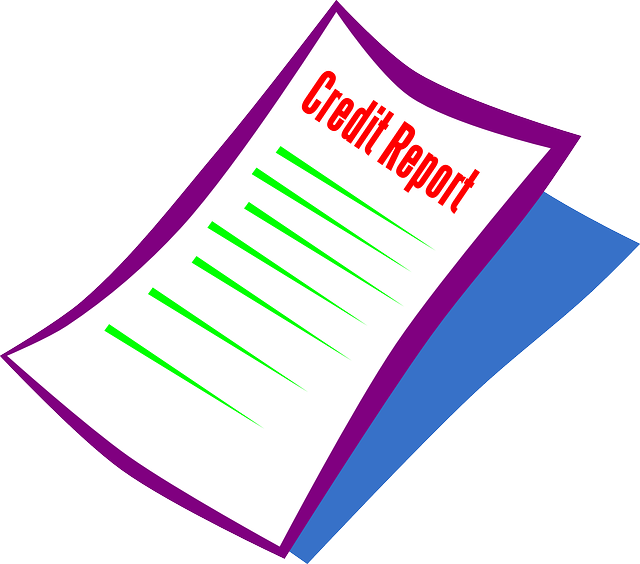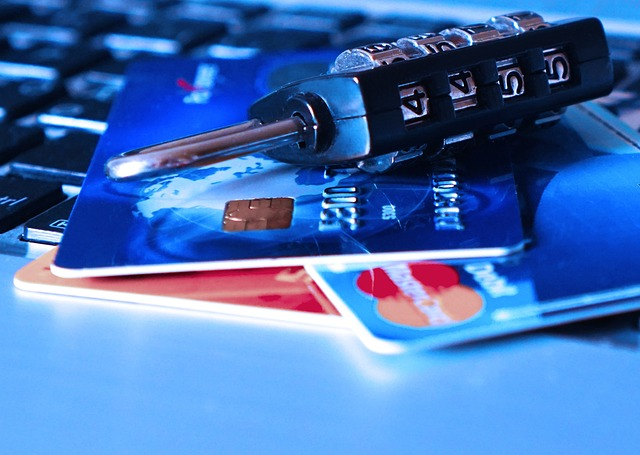What is a Bad Credit Score?

There’s no dividing line between a good credit score and a bad credit score, also called a subprime credit score. But most people consider scores in the fair to poor range to signal “bad credit.” The lower your credit score, the worse your credit. The higher end of fair credit scores might not be considered bad credit.
The two primary credit scoring models are FICO® credit scores and VantageScores®. Both consumer credit score models have a credit score range of 300-850. But there are different breakdowns of score ranges for each credit scoring model.
FICO Score Ranges:
- Exceptional: 800-850.
- Very good: 740-799.
- Good: 670-739.
- Fair: 580-669.
- Poor: 300-579.
VantageScore Ranges:
- Excellent: 781-850.
- Good: 661-780.
- Fair: 601-660.
- Poor: 500-600.
- Very poor: 300-499.
However, lenders maintain their own credit score ranges that might differ from the ones above. In addition, over 90% of lenders use FICO scores. While VantageScores have gained market share since its 2006 introduction, FICO credit scores remain the primary scoring model. Even so, a bad VantageScore credit score can cause credit denials.
As you can see, credit scores below 600 enter the bad credit territory. Scores below 500 are generally considered bad to very bad.
What Credit Report factors cause Bad Credit?

Credit reports contain your credit history. They list all your credit accounts, including credit card balances, how many credit cards you have, auto loans, how many loans you have or had, current balances for revolving credit or installment loans, available credit, credit limits, and recent credit applications.
The three major credit bureaus, Experian, Equifax, and TransUnion, generate credit reports. When authorized, the three bureaus share information with credit card issuers, lenders, insurance companies, banks, and even employers. Typically, you agree to let these companies access your credit file when you complete an application. The bureaus receive information from your credit account providers to compile your report.
Each credit bureau uses the information in your report to calculate credit scores. Most credit activity is categorized into one of five key factors that determine your credit score. Each factor is weighed differently.
FICO score factors are:
- Payment history: 35%.
- Amounts owed: 30%.
- Length of credit history: 15%.
- Credit mix: 10%.
- New credit: 10%.
See our Credit Score Factors Essential Guide for more in-depth information.
How does Bad Credit impact me?

Bad or no credit can cause significant financial challenges, especially when applying for personal or business loans. Here are the most significant risks of a poor credit score.
Denials: A bad credit score decreases your chances of being approved for financing, such as car loans, credit cards, mortgages, or other personal loans. You’ll have fewer small business loan options available as well.
High Interest Rates & Fees: The loans and credit cards accessible for a lower credit score have much higher interest rates. You can also expect additional fees, such as an origination fee, for some loans.
Additional Loan Requirements: Getting loan approval with a bad credit score might require adding a cosigner, collateral, or down payment. Business loans with bad credit might also require signing a personal guarantee.
Fewer Credit Card Perks & Rewards: A bad credit score significantly limits your credit card options. Higher credit borrowers can access premium rewards such as cashback, 0% introductory APRs, frequent flyer miles, and points. A low credit score means you’ll have limited rewards or no rewards program.
Higher Insurance Rates: Many states allow home and auto insurance providers to use your credit score in their risk analysis. A bad credit score could lead to higher premiums or denial of coverage.
Rental Denials & Higher Security Deposits: A bad credit score can also cause a denial when applying for a rental property. A poor credit score might mean you must make a higher security deposit if approved.
Utility Company Deposits: Utility companies and cell phone service providers might require a security deposit when setting up an account if you have a poor or fair credit score.
How can I improve Bad Credit?

Bad credit creates significant roadblocks to financing options, but the good news is that it isn’t permanent. While it takes time and persistence, you can improve your credit scores.
Here are the best credit habits to adopt to improve your score.
Make On-Time Payments Consistently: Your payment history is the most significant factor in your credit score, comprising 35% of the total. Late payments, defaults, and charge-offs all lower credit scores. The longer an amount due goes unpaid, the more significant impact on your score. However, consistently making your payments on time is the most sustainable way to improve your credit score.
Reduce Credit Usage: Your credit utilization rate (also called credit utilization ratio or credit usage rate) refers to how much credit you’re using compared to your available credit limit. For example, if you have a balance of $2,000 on a $10,000 credit limit, your credit utilization rate is 20%. It would be best to strive to keep credit usage below 30% to lower your credit score. Getting credit usage to single digits will help improve your credit score faster.
Don’t Close Old Accounts: Length of credit history makes up 15% of your score. You want to keep credit accounts open for years to help build or repair credit. People with excellent credit have an average account age of over 10.5 years.
Avoid Applying for New Credit: New credit applications result in a hard credit inquiry, and each inquiry can lower your FICO score by 5 points. Don’t open new credit accounts unless necessary or you’re explicitly opening an account or taking out a loan to improve credit. For example, a debt consolidation loan or balance transfer card could reduce your credit usage. If used properly, the positive impact of refinancing debt could outweigh the adverse effects of applying for credit.
Consider a Secured credit card: Opening a secured credit card can help repair damaged credit or build a credit history if you don’t have one. Secured credit cards require a deposit to secure the credit line. Once opened, using the card and quickly paying it off will help build a positive payment history. Look for credit card companies that report to the major credit reporting agencies.
Consider a Credit-Builder Loan: Another option for building first-time credit or repairing a low credit score is a credit-builder loan. Instead of receiving the loan total upfront, the lender sets it aside in a savings or CD account. You make regular payments plus interest until it’s paid in full. The lender then releases the funds to you. Credit-builder loans are usually for small sums.
Work with a Credit Repair Service or Credit Counselor: A credit repair service can help you identify the issues causing a lower credit score. It can then help you devise a plan to pay off debt or help with a debt consolidation loan. Credit counselors provide similar services with a more direct and hands-on approach. However, we advise caution as there are many credit repair scams. Avoid any credit repair service that needs upfront payment or overpromises on how quickly it can boost your credit score.
Frequently Asked Questions

Here are the most common questions about bad credit scores.
Where can I get a Free Credit Score?
Everyone gets one free credit report from each bureau per year at www.AnnualCreditReport.com. You can access free reports weekly through the end of 2023. While your free annual report doesn’t include a free score, it provides all the information that comprises your score.
You can also create a free account at one or all three credit bureaus. The free account includes one free credit score. Paid accounts typically have options for viewing credit scores at the other bureaus and seeing the different FICO scores and VantageScores versions.
Many financial services companies provide free credit scores as part of your account. Examples include banks, credit card issuers, and some non-bank lenders.
Are there Business Loan options for Bad Credit?
Yes, there are business loans for bad credit. You’ll sometimes see these listed as “bad credit business loans” or “business loans with bad credit.”
However, getting a business loan with bad credit is more challenging. You’ll likely have to apply to an alternative online lender or marketplace, like UCS. Traditional lenders like banks and credit unions usually won’t issue a bad credit business loan.
In addition to having fewer loan options, small business loans for bad credit usually have lower credit limits, higher interest rates, additional fees, shorter terms, and frequent payments. One way to think of a business loan for bad credit is as a form of bridge financing.
Bad credit business loans can provide short-term financing to help support operations. Your credit could improve as you repay the loan and grow the business. Once you have a better credit score, a longer time in business, and higher revenue, you can qualify for a longer-term, lower-cost loan. Sometimes, you can use the long-term loan funds to pay off the bad credit business loan.
See our Best Business Loans for Bad Credit essential guide for more information.
Bad Credit Business Loan Pros & Cons
Pros:
- Accessible financing for borrowers with a low credit score.
- Could potentially help build or repair credit with timely payments.
- Might be able to use the funds to pay off existing debt.
- Quick and easy online applications.
- Usually fast approval and funding times.
Cons:
- Higher interest rates & fees.
- Lower borrowing amounts.
- Typically short-term financing with frequent repayments.
- Might require collateral or a personal guarantee.
- Could require automatic payment withdrawals.
- Fewer options for lenders and loan types.
What is Considered Bad Credit – Final Thoughts

While there’s no defining line for “bad credit,” most scores below 670 are considered fair, and scores below 580-600 are considered poor, depending on the scoring model. Anything below 500 is in the very poor range and severely limits your financing options. Generally, credit scores below 580 are bad credit.
It’s also difficult to quantify a bad credit score because lenders have varying score cutoffs. For example, you might need a high credit score in the 700-740+ range to qualify for the most advantageous business bank loans. At the same time, a score of 600-650+ lets you access most alternative business loans.
It’s essential to manage your credit for business and personal finance. Continually monitor your credit for incorrect or outdated information. The most important action to improve credit is paying loans, credit card debt, and bills on time. You also want to maintain low credit usage and keep old credit accounts open and active.
Contact us if you have more questions about bad credit or to apply for a small business loan. Our funding experts can help you find the best business loans for your credit score.













